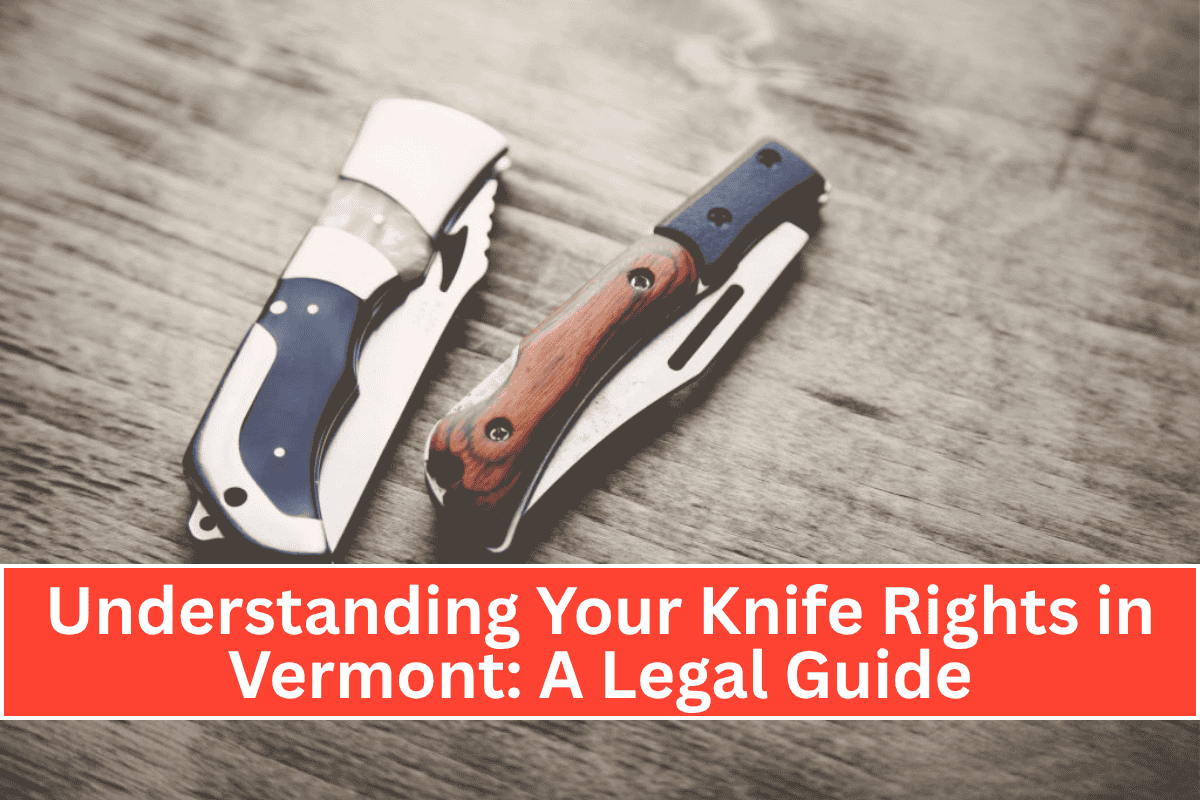Vermont is one of the more lenient states when it comes to laws surrounding knives, especially compared to many others across the U.S. However, like any state, it does have some regulations in place to ensure public safety, especially in certain areas like schools, courts, and other restricted locations.
If you’re a Vermont resident or planning to visit, here’s a breakdown of the state’s knife laws and what you need to know to stay within legal bounds.
Key Knife Laws in Vermont
Statewide Preemption:
Vermont law offers statewide preemption, meaning that municipalities (local governments) are generally not allowed to create their own laws regarding knives and weapons.
The Vermont legislature has delegated some limited regulatory power to municipalities, but local governments cannot regulate the possession of weapons. So, knife laws are primarily governed by state laws.
Concealed Carry:
Carrying a concealed knife is not a significant issue in Vermont. The state does not have specific restrictions on carrying knives, whether open or concealed, unless they fall under the category of a “dangerous” or “deadly” weapon and are intended for harmful use.
Schools and Public Property:
The most notable restrictions regarding knives are for schools. Possessing a knife or any dangerous weapon on school property, including school buses, is strictly prohibited. This includes any knife that could be considered a dangerous weapon, even if it’s not specifically a “deadly weapon.”
Restricted Knives in Vermont
Switchblades & Automatic Knives:
Vermont has a long-standing ban on switchblade or automatic knives with blades longer than 3 inches. The law defines these knives as those that have a mechanism that allows them to open automatically with the push of a button, making them more easily accessible for quick use. A switchblade with a blade longer than 3 inches is illegal to possess, sell, or transfer.
It’s important to note that the term “switchblade” is not specifically defined in Vermont law, but the restriction on the size of the blade is clear. If you own or intend to purchase a switchblade or automatic knife, be aware that the blade cannot exceed 3 inches.
Dangerous and Deadly Weapons:
While owning a knife in Vermont is not automatically a crime, knives can be classified as “dangerous” or “deadly” weapons if used with the intent to harm others.
A “deadly weapon” under Vermont law is anything that, in the manner it is used or intended to be used, is capable of producing death or serious injury. A knife could easily fall into this category if it is used to threaten or harm someone.
However, simply possessing a knife, even if it could be considered a dangerous or deadly weapon, does not violate Vermont law as long as the knife is not being carried with the intent to harm someone. It becomes a legal issue when there is intent to injure others.
Penalties for Violating Knife Laws in Vermont
The consequences of violating knife laws in Vermont depend on the specific offense. If someone is caught carrying a dangerous or deadly weapon with the intent to injure another person, they could face serious consequences.
Such an offense could result in a fine up to $2,000 or imprisonment for up to two years. If the offense involves multiple victims, it could become a felony, with penalties of up to 10 years in prison or a fine of $25,000.
School and Court Restrictions:
Possessing a dangerous weapon on school grounds or in a court building can lead to legal consequences. For instance, possession of a dangerous weapon at a school could result in up to one year of imprisonment and/or a fine of up to $1,000.
Similarly, possessing a dangerous weapon in a court facility could result in imprisonment of up to one year and/or a fine of up to $500.
Exemptions and Special Circumstances
Law Enforcement and School Officials:
Certain individuals, such as law enforcement officers or school officials, may have exemptions to carry dangerous weapons, including knives, in certain circumstances. These exceptions are specified under Vermont law, particularly for law enforcement officers certified by the Vermont Criminal Justice Training Council.
Vermont offers relatively straightforward laws when it comes to knives, especially for those who own and use them responsibly. Carrying a knife is generally not an issue unless it is a switchblade with a blade longer than 3 inches or if it is carried with the intent to harm others.
Remember that while Vermont does not have broad restrictions on knives, possession on school grounds, in court facilities, or with intent to harm can lead to severe legal consequences. Always be mindful of the type of knife you carry and where you bring it to avoid running afoul of Vermont’s knife laws.












